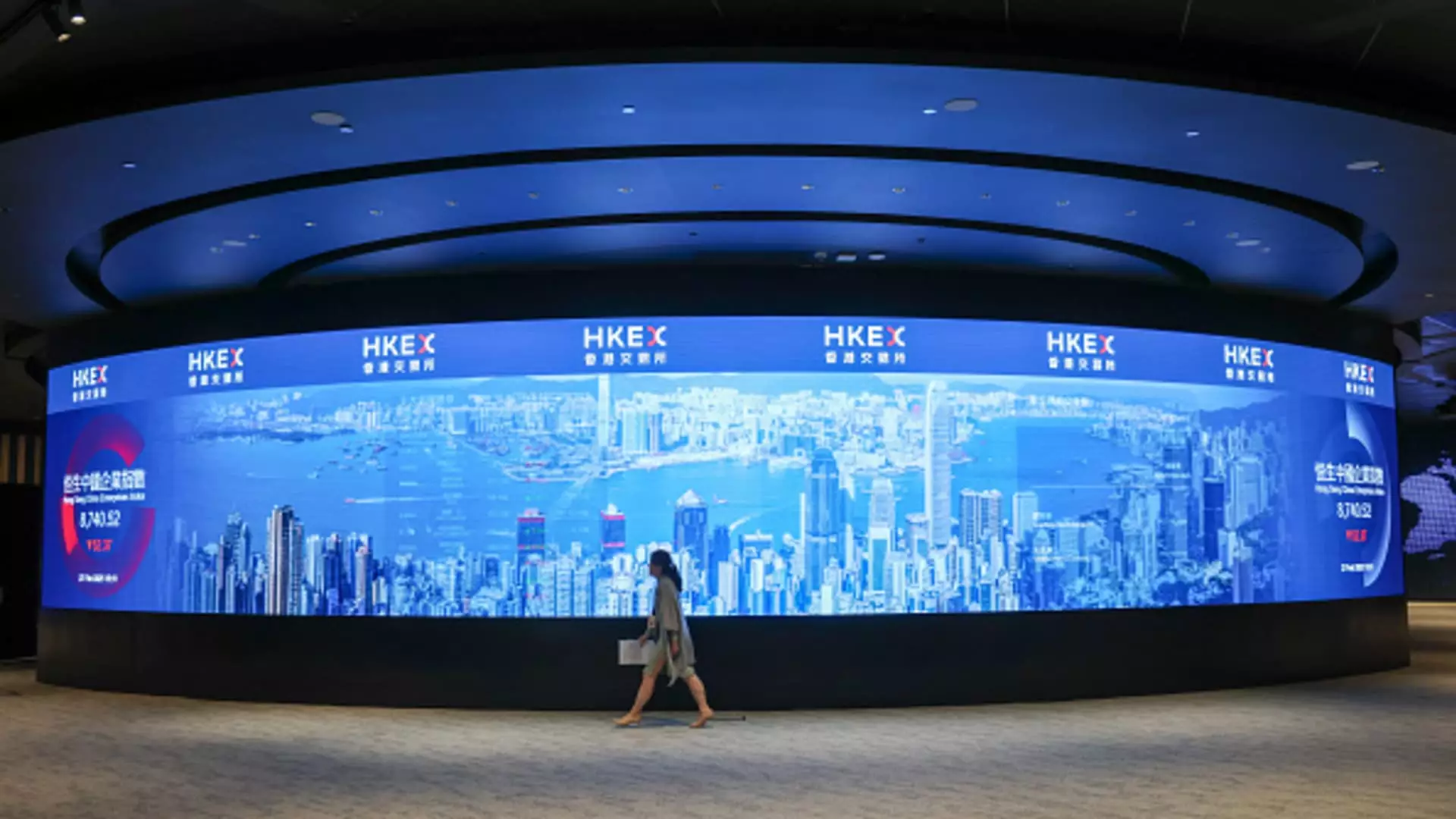In an astonishing turn of events, mainland Chinese investors are flocking to the Hong Kong stock market, marking unprecedented levels of investment activity. Just recently, net mainland purchases reached a staggering 29.62 billion Hong Kong dollars (around $3.81 billion) in a single day—a phenomenon that has drawn the eyes of not only local investors but also global market watchers. This accelerated interest comes as the Hang Seng Index hovers near three-year highs, signaling a renewed confidence that could reshape the investment landscape in the region.
What’s driving this influx? The launch of the “connect” programs connecting mainland and Hong Kong exchanges—Shanghai Connect in 2014 and Shenzhen Connect in 2016—has paved the way for greater accessibility, allowing Chinese investors to purchase stocks that are otherwise off-limits in their domestic markets. It’s this regulatory loosening that has triggered a fresh wave of capital mobility and enthusiasm for Hong Kong-listed shares, especially those from technology giants like Alibaba and Tencent, which have historically been out of reach for mainland investors.
The Shadow of U.S.-China Trade Tensions
Despite this positive trend, the backdrop of U.S.-China trade tensions casts a long shadow. Disappointingly, as the U.S. markets recently demonstrated volatility, Hong Kong stocks experienced a slight dip, dropping approximately 0.7%. Analysts are rightfully concerned about the tariffs and their implications on global growth. While the immediate future is uncertain, the long-term prospects appear more favorable. Institutions are recalibrating their strategies, with Citi’s macro team notably revising their stance on Chinese stocks to overweight—a strong indicator of faith in this rebounding sector, even amid tariff concerns.
This duality—of urgent local investment versus the inherent risks posed by geopolitical factors—raises a compelling question: Will the burgeoning investor interest ultimately outpace the looming threats? In my view, if Chinese technologies continue to push boundaries, such as DeepSeek’s advanced developments and the emergence of AI platforms, then the potential rewards may justify the inherent risks. Investors would be wise to recalibrate their focus toward a rapidly evolving tech landscape rather than remain anchored to the whims of tariff discourse.
A Government Committed to Growth
In a clear demonstration of its commitment to economic growth, the Chinese government has recently reaffirmed its pro-growth agenda by announcing significant fiscal measures. Plans to increase the fiscal deficit to a remarkable 4% of GDP, alongside expanded consumer subsidies, signal to investors that Beijing is serious about stimulating domestic innovation, particularly in the technology sector. While the impact of such initiatives may not be fully realized just yet, they do foster a sense of optimism that could compel investors to engage with both emerging and established enterprises within the Hong Kong market.
Critically, this policy shift serves dual purposes: bolstering local tech firms while also enhancing consumer confidence. In the context of economic recovery, the focus on supporting private-sector tech innovation could position Hong Kong as a central hub not just for investment but also for innovative growth.
Technology Takes Center Stage
Amid this flurry of activity, the technology sector is emerging as a focal point of investment appetite. Major players such as Alibaba and Tencent are attracting unprecedented levels of mainland investment, highlighting a shift in market dynamics. It’s essential to recognize that more technology companies are traded on the Hong Kong exchange than within mainland China itself—an enticing prospect for investors who may have felt constrained by domestic limitations.
Moreover, commentators like Manishi Raychaudhuri of Emmer Capital Partners astutely decipher market trends, underscoring the notion that emerging markets, particularly in Asia, could soon become a favored hunting ground for capital allocations. As the stocks remain undervalued and under-owned, those with foresight might find vast opportunities ripe for the taking, particularly in technology and consumption-related sectors that are primed for a rebound.
Summing up the current landscape, Hong Kong stands as a beacon for investors navigating the complexities of regional growth and external pressures. The evolving dynamics of the stock market, driven by both impressive investor appetite and proactive government policies, set the stage for a fascinating narrative that merits close observation. As the rhythm of trade shifts, so too does the potential for transformative investment opportunities within this vibrant financial ecosystem.

